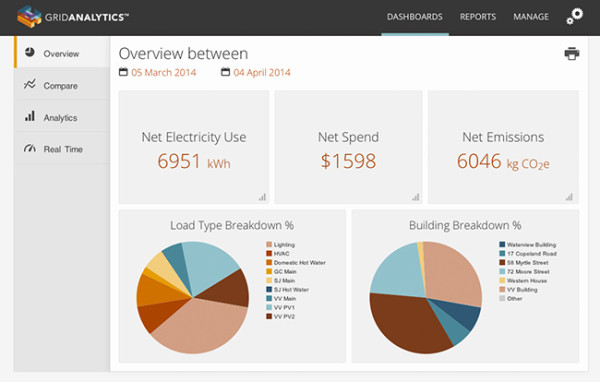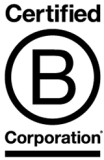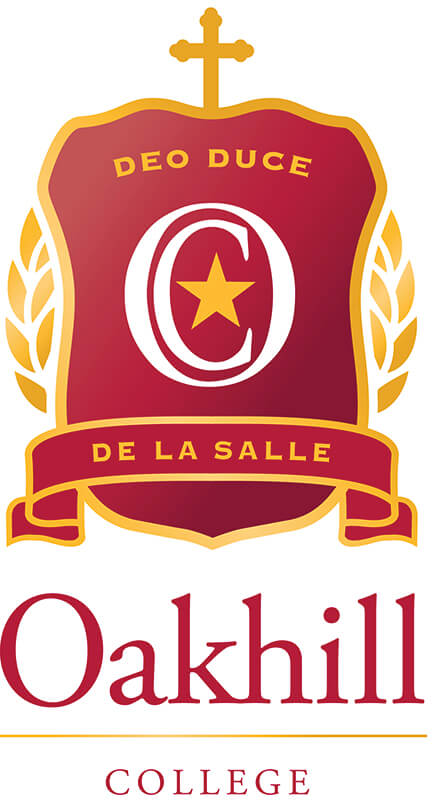News stories
- Pangolin now offers energy monitoring – managing energy on demand
- CitySwitch Green Office – guest writer Pip Harley, City of Sydney
- B Corp certified – international recognition for doing the right thing
- Greening our Adelaide office – solar panels, HVAC upgrades, energy monitoring, efficient lighting
- Education in sustainability – a case study of Oakhill College
Miss our last newsletter?
Pangolin now offers energy monitoring
Managing energy on demand
Do you know…
- what lights, equipment and technology are on and when?
- what proportion of your equipment draws electricity at night, weekends, or when no one is working?
- if pass-through electricity costs you pay to your building owner or landlord are correct?
Find out your hidden consumption – yourself
Our clients have been asking for more convenient ways to measure energy on a regular basis. We’ve listened, and now we’re helping them manage energy on demand with an easy-to-use monitoring system.
How energy monitoring works
We install robust, cost effective Wattwatcher energy monitors at your site. These monitors refresh your energy use data every 5 seconds and interface with GridAnalytics, a web-based software platform built by Acresta (now SimbleSense).
GridAnalytics provides real time data on any computer or mobile device. It enables quick access to energy consumption and energy variation across your site, when needed, and accurately identifies trends and cost savings. Data is exportable and available in all energy values: $, V, A PF, kW, VAR, Hz, kWh, kg Co2-e.
 Acresta has also developed a companion tool, CarbonView, designed for carbon accounting and reporting. Acresta (now SimbleSense) is a Pangolin Associates partner.
Acresta has also developed a companion tool, CarbonView, designed for carbon accounting and reporting. Acresta (now SimbleSense) is a Pangolin Associates partner.
CitySwitch Green Office
Guest writer Pip Harley, City of Sydney
 CitySwitch Green Office is a free national energy efficiency program aimed specifically at commercial office tenants. Running through a network of local councils for almost ten years, its growing membership represents a who’s who of inspirational business leaders, keen to share their experiences and help others along the journey.
CitySwitch Green Office is a free national energy efficiency program aimed specifically at commercial office tenants. Running through a network of local councils for almost ten years, its growing membership represents a who’s who of inspirational business leaders, keen to share their experiences and help others along the journey.
Better outcomes for tenants
CitySwitch aims to help tenants have an informed voice in order to bring about changes in their tenancy that not only result in better environmental outcomes but also a positive financial outcome.
Tenants have such an important role to play in sustainability but in many cases the true potential of that role isn’t exercised. This can be for a variety of reasons, from simply not knowing what the issues are and how to tackle them, to the blockages caused by the traditional interplay of building owner, building manager and tenant.
The CitySwitch program inspires businesses to innovate and to pursue excellence. From our experience with the over 500 businesses we currently work with ‘green’ is now a proxy for good practice, for operational efficiency, innovation and risk management, for interrogating business models, continuous improvement and strong governance.
Negotiating a greener workspace
The best time to exert the full power of tenant influence is at lease negotiation time, particularly in a competitive rental environment when landlords will do almost anything to attract tenants. Asking for ‘green’ clauses to be included in the standard lease document is a strong message to the market that a high performing building is a priority for your business.
This doesn’t mean it will cost you more, in fact in most cases it will mean the opposite. A high performing building uses less energy, generates less waste and provides a high degree of internal comfort which all mean fewer outgoings, higher productivity and less absenteeism for the businesses occupying that space. CitySwitch often hears from building owners and managers that these clauses are not included in their standard leases because tenants aren’t asking for them – we need to change that! Put simply, tenants drive the demand for better performing buildings.
There are many, many other ways in which tenants can influence the performance of the space they occupy. CitySwitch offers tenants a structured way to identify where the opportunities are, whether lighting upgrades, no cost behaviour change campaigns, or waste and recycling changes. The program is free to join and runs annual awards to help you promote the fact that your business is taking responsibility for the impact of its operations.
Pangolin Associates is a member of CitySwitch.
For more information on CitySwitch Green Office
B Corp certified
International recognition for doing the right thing
 In June 2014 Pangolin Associates achieved B Corp certification. An international, voluntary initiative, B Corp recognises businesses improving or making positive contributions to social and environmental issues. Rather than single instances of good will and corporate responsibility, B Corp requires that such actions are part of an organisation’s structure – part of business as usual.
In June 2014 Pangolin Associates achieved B Corp certification. An international, voluntary initiative, B Corp recognises businesses improving or making positive contributions to social and environmental issues. Rather than single instances of good will and corporate responsibility, B Corp requires that such actions are part of an organisation’s structure – part of business as usual.
The B Corp application process has rigorous, performance and legal requirements. Certification is an assurance to customers and stakeholders that certified members meet a high standard of accountability and transparency.
Pangolin joins over 1000 B Corp companies across the globe representing 60 industries.
Greening our Adelaide office

- Solar PV
- HVAC upgrades
- Energy monitoring
- Efficient lighting
Along with our B Corp certification (see our story above: B Corp certified) here is our own sustainability news from Pangolin South Australia. We’ve made our Adelaide office greener and more efficient with solar PVs. We’ve also adopted our newest offering, energy monitoring using the GridAnalytics platform with Wattwatcher energy monitors. Ask us about it!
Solar array: This June we installed 120 solar photovoltaic (PV) panels at our Adelaide location. The array has a capacity of 30 kW, a significant move to clean energy and cost savings.
Energy monitors and HVAC efficiencies: We installed two energy monitors, one on each HVAC unit. These monitors work with GridAnalytics, a web-based platform that allows us to track electricity use, as needed, and manage it more effectively (see more in our main story: Pangolin now offers energy monitoring).
Additionally we installed soft starts on both compressors of the larger HVAC. The devices reduce power surges during start up, extending the system’s lifespan and reducing repair costs. The larger unit now uses an economiser which more efficiently uses outdoor air to cool our office (when outdoor air temperatures are lower), rather than the warmer, recirculated indoor air.
Energy efficient lights: Since moving into our Norwood building in 2012, we’ve replaced 124 lights with energy efficient LEDs. This simple change will affect electricity consumption substantially. Lights accounted for about 20,000 kWh, about 20% of the office’s power bill. Replacing halogen downlights with LEDs, and 36W fluro tubes with 18W LED tubes should save Pangolin approximately 14,000kWh per year.
- Read more about Pangolin’s sustainability
- Talk to us about a greener, energy efficient office
- Back to top
Education in sustainability
 A case study of Oakhill College
A case study of Oakhill College
Oakhill College in Castle Hill NSW is the subject of our latest case study. The College invests substantially in energy efficiencies, renewable energy, and waste management. Impressively, their actions give Oakhill students an education in environmental responsibility.
A sustainability plan
Carbon footprint: Pangolin started working with Oakhill College in 2011, when Bursar Steve Molloy commissioned a Greenhouse Gas Assessment (carbon footprint). He understood that long-term sustainability meant setting a baseline (CY 2010) and undertaking yearly assessments so the College could accurately track progress and make informed decisions. The College has successfully reduced greenhouse gas emissions. CY 2010 – CY 2013 reports show:
- Year on year reduction – 23.5%,
- Year on base year reduction – 24.4%.
Electricity usage: Oakhill also undertook an Energy Audit to see, in detail, how and where the College, with its multitude of rooms and buildings, uses energy. Audit recommendations found savings of almost $60,000 annually, and a 3-year pay back on investment.
Efficiencies implemented since the audit include a solar photovoltaic system of 83 panels and capacity of 20 kW, and energy efficient LED lighting. Our auditors found that lighting represented 40.5% of total energy use.
Waste management: Recycling is another Oakhill success. Customised bins encourage students to do the right thing for the environment and separate plastics, glass and paper from waste. Oakhill’s approximately 1650 students dropped waste to landfill from 511 to 114 tonnes from CY 2010 to CY 2013. That is impressive.
Sound advice, taking action: Bursar Steve Molly says: “Pangolin Associates has been – and remain – partners with whom we work effectively. Their advice has enabled us to commence work on an evolving reduction strategy.”
We wish Oakhill continued success!
- Read the entire Oakhill College case study
- Educational institution? Talk to us about sustainability
- Back to top
